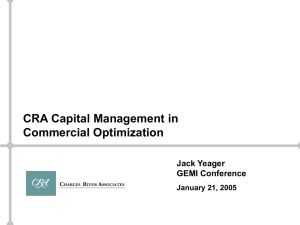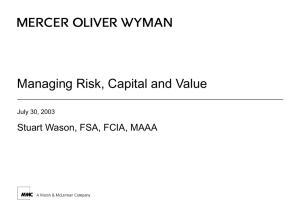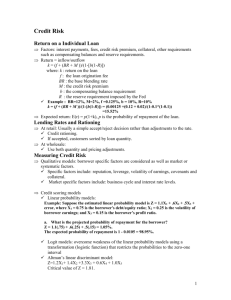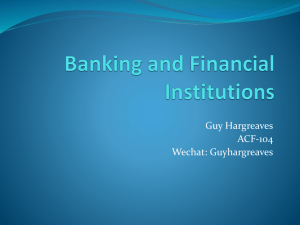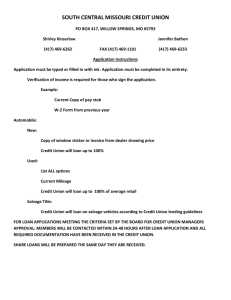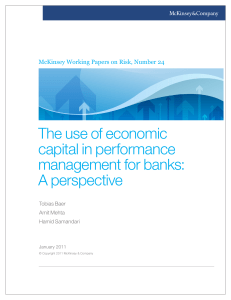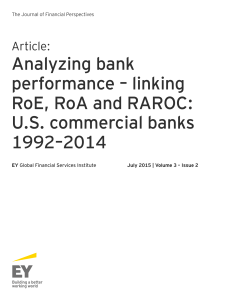Building a VaR model for a financial investment portfolio of fixed
advertisement
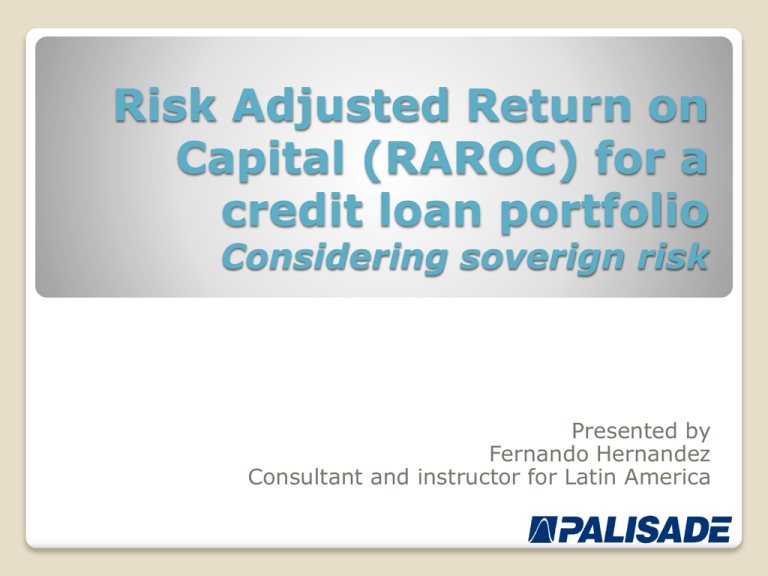
Risk Adjusted Return on Capital (RAROC) for a credit loan portfolio Considering soverign risk Presented by Fernando Hernandez Consultant and instructor for Latin America 1 RAROC Definition Risk adjusted return on capital (RAROC) is a risk-based profitability measurement framework for analysing risk-adjusted financial performance and providing a consistent view of profitability across businesses. The concept was developed by Bankers Trust in the late 1970s. the risk adjustment of Capital is based on the capital adequacy guidelines as outlined by the Basel Committee, currently Basel II. 2 Definitions Broadly speaking, in business enterprises, risk is traded off against benefit. RAROC is defined as the ratio of risk adjusted return to economic capital. The economic capital is the amount of money which is needed to secure the survival in a worst case scenario, that is it is a buffer against heavy shocks. 3 Economic capital Economic capital is a function of market risk, credit risk, and operational risk, and is often calculated by VaR. This use of capital based on risk improves the capital allocation across different functional areas of banks, insurance companies, or any business in which capital is placed at risk for an expected return above the risk-free rate. 4 Formula for our RAROC RAROC = EAD LevRatio WACC BUExp CorpExp ExpLoss CPC = = = = = = = (EAD * LevRatio * WACC) – BUExp – CorpExp – ExpLoss (EAD / CPC) Exposure at default (How much money is exposed to credit default) Leverage Ratio (Total liabilities / Total Assets) Weighted average cost of capital (what’s the cost of raising funds) Business Unit Expense (Expenses allocated at the BU level) Corporate expense (Expenses allocated at the centralized level) Expected loss (If customer defaults how much money is lost) Credit loan portfolio / Capital (a measure of the relative size of the loan portfolio) 5 Where do risks come from in this model Loss Given default Probability of default 6 Loss Given Default How much money is being recuperated if customer defaults More than usual, this is a very small percentage of the loan Based on historical information 7 Probability of default The probability that the customer will not completely pay the exposure at default amount (EAD) Defined by a lambda factor Depends on 2 key elements: ◦ Customer’s risk level (regulatory) ◦ Country risk factor (sovereign risk) 8 Let’s take a closer look at the actual results… 9 Muito obrigado! 10
